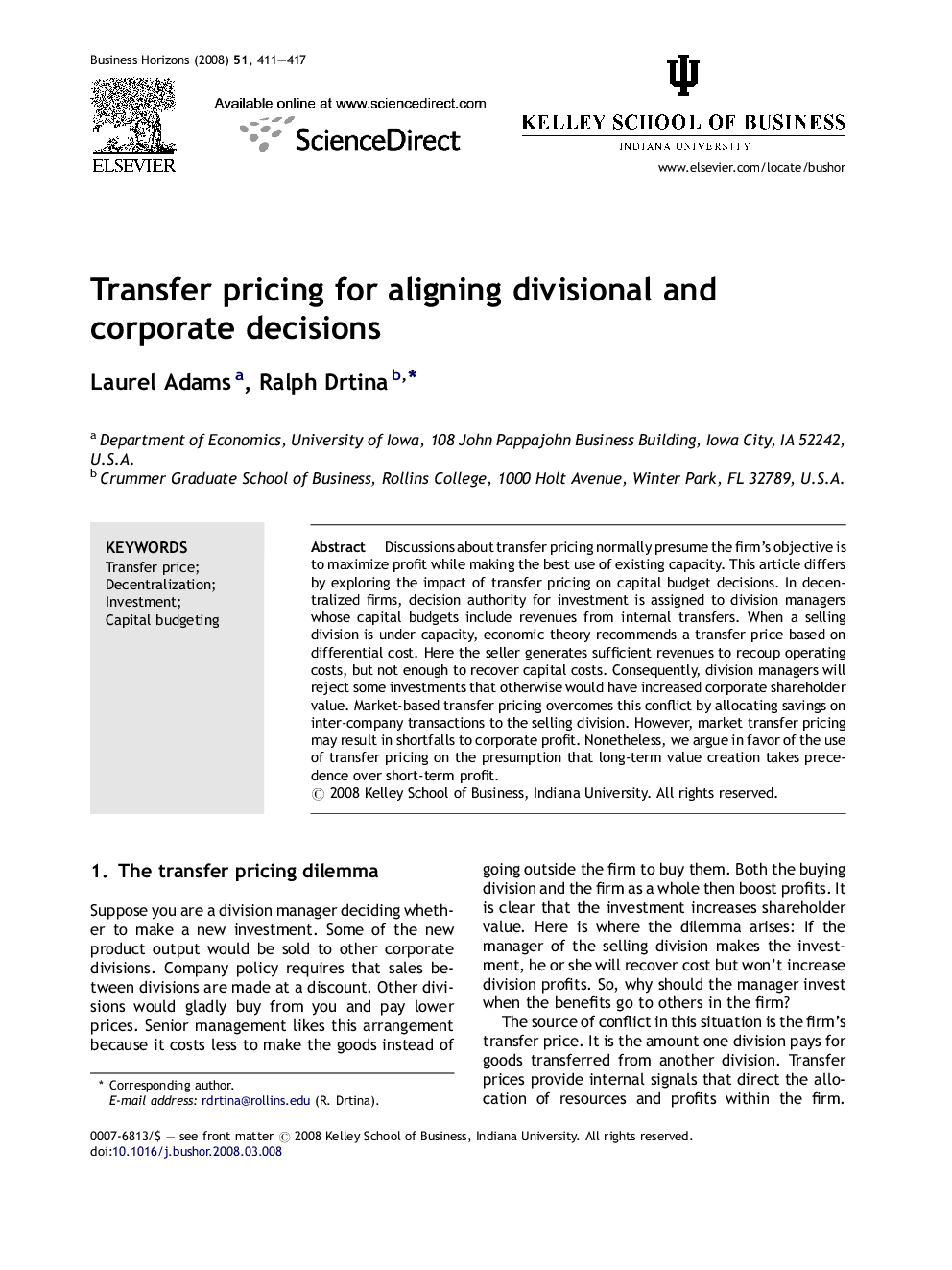| Article ID | Journal | Published Year | Pages | File Type |
|---|---|---|---|---|
| 1014429 | Business Horizons | 2008 | 7 Pages |
Discussions about transfer pricing normally presume the firm's objective is to maximize profit while making the best use of existing capacity. This article differs by exploring the impact of transfer pricing on capital budget decisions. In decentralized firms, decision authority for investment is assigned to division managers whose capital budgets include revenues from internal transfers. When a selling division is under capacity, economic theory recommends a transfer price based on differential cost. Here the seller generates sufficient revenues to recoup operating costs, but not enough to recover capital costs. Consequently, division managers will reject some investments that otherwise would have increased corporate shareholder value. Market-based transfer pricing overcomes this conflict by allocating savings on inter-company transactions to the selling division. However, market transfer pricing may result in shortfalls to corporate profit. Nonetheless, we argue in favor of the use of transfer pricing on the presumption that long-term value creation takes precedence over short-term profit.
